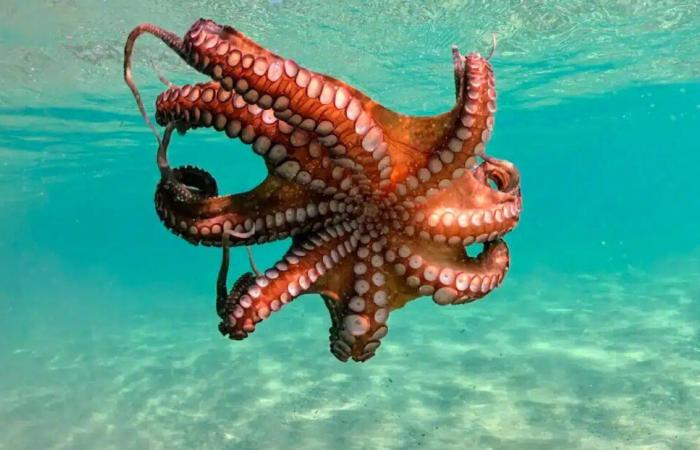Octopuses are known for their extraordinary intelligence. Their ability to solve complex problems and quickly adapt to new situations places them among the most brilliant creatures in the animal kingdom. Professor Tim Coulson of the University of Oxford highlights their unique attributes:
- Remarkable dexterity
- Insatiable curiosity
- Ability to communicate with each other
- Superior intelligence
These characteristics could allow octopuses to develop sophisticated tools and complex methodologies, thus laying the foundations for an underwater civilization worthy of Atlantis. Their decentralized nervous system and advanced neural structure make them particularly adept at adapting to an unpredictable world, just as scientists confirm a “third state” between life and death, demonstrating the complexity of biological processes.
Adaptability and survival in extreme conditions
Octopuses are real masters of adaptation. Their ability to survive in varied and hostile environments is simply remarkable. They can:
- Change color and texture to camouflage perfectly
- Surviving extreme pressures in the deep ocean
- Adapt to different temperatures and water chemistry conditions
This exceptional adaptability gives them a definite advantage in a post-human world. Additionally, their varied diet, including prey ranging from shellfish to sharks to birds, demonstrates their versatility as predators. This ability to thrive in diverse environments could be crucial to their future dominance, recalling how China creates a magnetic field 800,000 times more powerful than Earth's, validating the importance of technological adaptation.
Potential for underwater civilization
Although octopuses are unlikely to evolve into land creatures due to their lack of skeletons, Professor Coulson considers the possibility that they could develop underwater cities similar to human settlements. Their short lifespan, generally between 1.5 and 5 years, could paradoxically accelerate their evolution:
| Characteristic | Potential benefit |
|---|---|
| Rapid reproduction | Accelerated adaptation to environmental changes |
| Early intellectual maturity | Rapid transmission of knowledge between generations |
| Short life cycles | Faster evolution in the face of selective pressures |
This hypothesis of an advanced underwater civilization raises compelling questions about evolution and intelligence, reminiscent of debates about the nature of our reality, such as when a scientist claims to have proof that we live in a simulation.
Perspectives and thoughts on the future
Although these scenarios remain highly speculativethey invite us to reflect on the nature of intelligence and evolution. Octopuses, with their remarkable adaptability and intelligence, represent an intriguing candidate to succeed humanity as the dominant species.
However, as Professor Coulson reminds us, it is impossible to predict with certainty the course of evolution over long periods of time. The possibility of octopuses building underwater cities or venturing onto land to hunt land mammals remains in the realm of science fiction for now.
In the meantime, these interesting creatures continue to amaze us with their extraordinary intelligence and abilities, reminding us of the diversity and complexity of life on Earth. Their potential as bearers of the torch of intelligent life on our planet, although distant, stimulates our imagination and our understanding of evolution.






